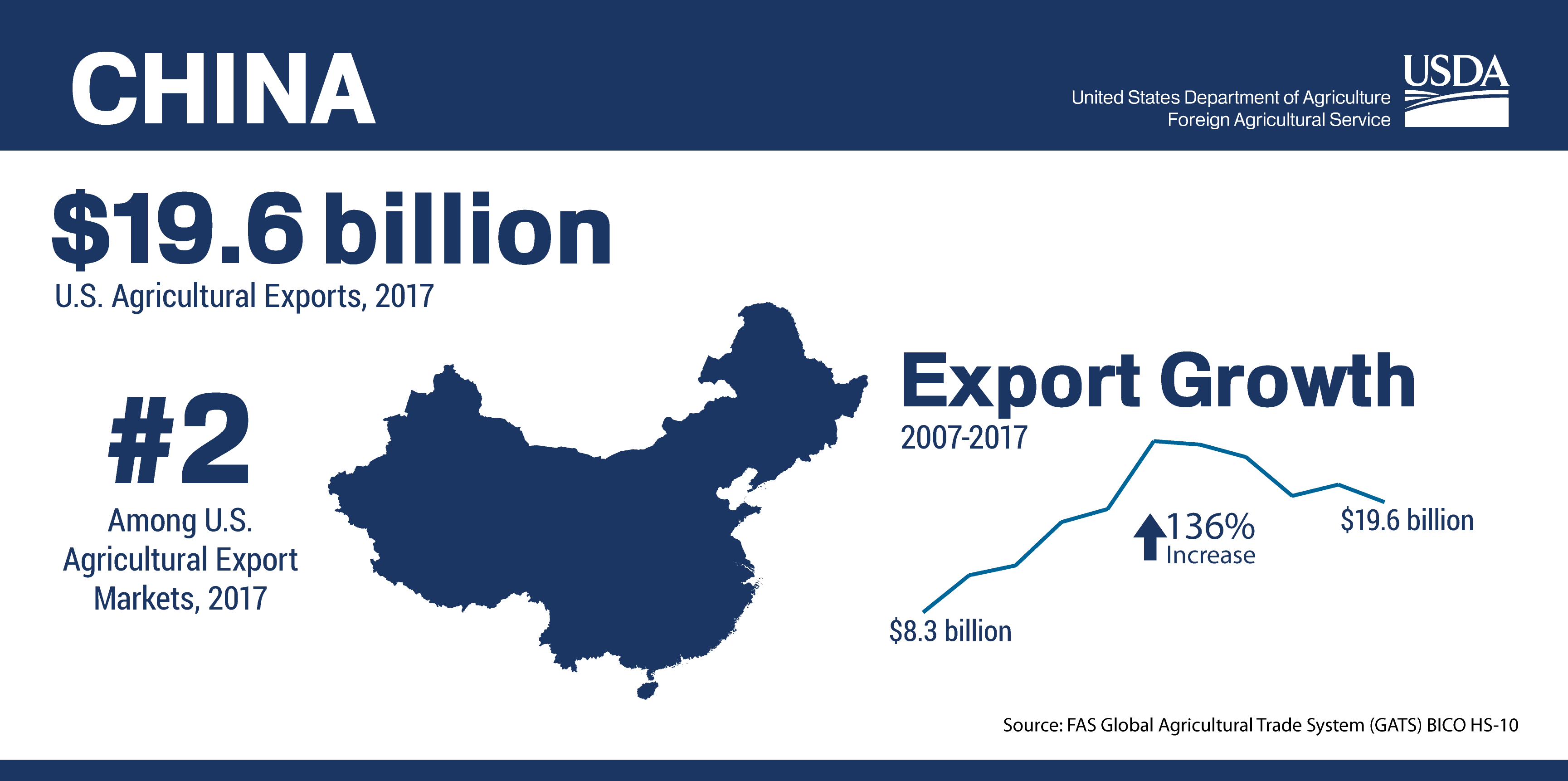



Farm Bureau concerned about possible Chinese trade retaliation
After President Trump’s recent announcement that the US would be imposing tariffs on steel and aluminium imports, farm bureaus are worried that the US will now face retaliation in the form of agricultural trade tariffs.President Trump recently announced that the US would impose tariffs on steel and aluminium imports. Extra tariffs of twenty-five percent are being placed on steel and ten percent on aluminium. These tariffs went into effect 23 March 2018. Certain countries have been exempted, at least temporarily, from the application of these tariffs.
American Farm Bureau Federation (AFBF) President Zippy Duvall announced:
Chinese officials now have indicated they are prepared to slap tariffs on US pork, wine and fruit in retaliation for what our government says are justified US trade measures against China on intellectual property issues.
If the trade situation continues to deteriorate, our lives as farmers and ranchers will become more difficult. America’s farmers and ranchers export more than $21 billion of farm products to China – more than 20 percent of our production. After Canada, China is our second-largest customer for ag exports.

Michigan Farm Bureau (MFB) is a strong advocate for free and fair trade. MFB policy states:
Our government should insist on strict adherence to bilateral and multilateral trade agreements to which the United States is a party to prevent unfair practices by competing nations and to assure unrestricted access to domestic and world markets. All trade agreements should be continuously monitored and enforced to ensure they result in fair trade.
Ernie Birchmeier is Manager for the Center for Commodity, Farm and Industry Relations at Michigan Farm Bureau. He feels it’s important to not jeopardise US export markets:
Free and fair trade is a two-way street and MFB policy is very clear in our position that our trading partners should adhere to the rules set by the WTO and be closely monitored to ensure agricultural trade commitments are upheld.
Trade rules and agreements have been negotiated over time and they need to be enforced. It is imperative that if the United States is required to follow the rules, then the rest of our trading partners should be forced to do so as well.
Farm Bureau, along with coalition partners on trade, has expressed and will continue to express these concerns to the Administration and to Congress, that countries affected by the new tariffs can retaliate against US agricultural exports by imposing tariffs and other restrictions, actions which China already has under consideration.
The President is acting under the national security provisions of section 232 of the Trade Expansion Act of 1962. The announcement of tariffs follows a Commerce Department determination that imports of steel and aluminium were harming national security. The President’s action on intellectual property tariffs points to efforts to curtail IP theft by Chinese industry.
As reported by Michigan Farm Bureau









